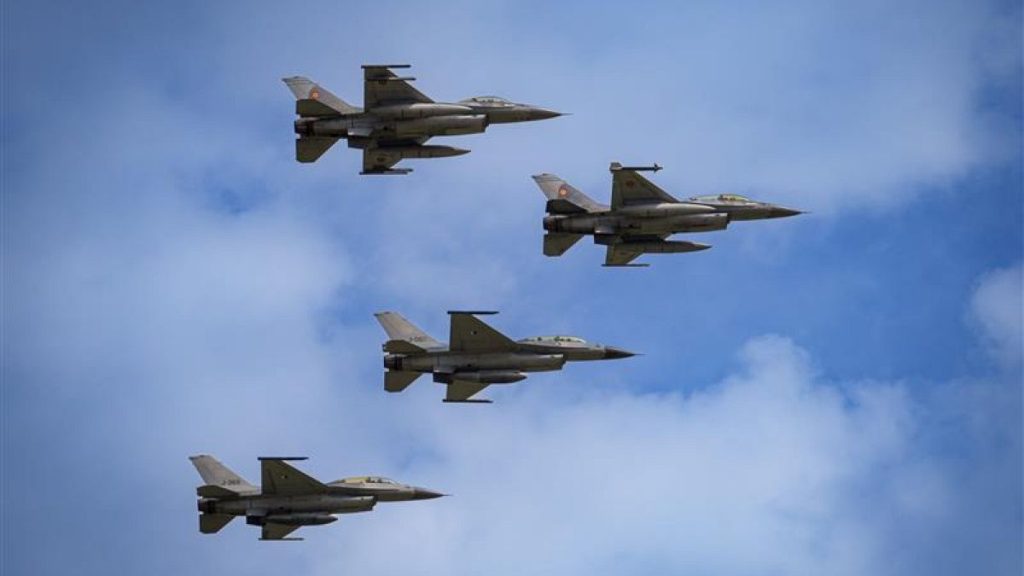The European Union is navigating a complex landscape in its pursuit of bolstering its defense capabilities. While committed to a “strong transatlantic partnership,” particularly with the United States, the EU recognizes the inherent tension between relying on foreign suppliers and achieving long-term strategic autonomy. This delicate balancing act is playing out in discussions surrounding the European Defence Industry Programme (EDIP), a €1.5 billion initiative designed to strengthen the EU’s defense industrial base.
A key challenge facing the EU is its significant dependence on non-EU defense suppliers. Data reveals that a staggering 75% of new defense orders between February 2022 and mid-2023 originated from outside Europe, underscoring the bloc’s vulnerability and reliance on external partners. This reliance is particularly pronounced in the short term, where established non-EU suppliers, such as those from the US, are seen as critical to meeting immediate defense needs. However, this dependence raises concerns about long-term strategic autonomy and the ability of the EU to act independently in matters of security.
The EU Commission, spearheaded by Commissioner for Defence and Space, Andrius Kubilius, advocates for a comprehensive overhaul of Europe’s defense industry. This “Big Bang” approach aims to both address immediate needs through cooperation with non-EU partners and foster long-term self-sufficiency by incentivizing European defense companies and reducing reliance on external suppliers. Kubilius emphasizes the need for democratic unity in the face of growing challenges from authoritarian regimes, including Russia, Iran, North Korea, and China, underscoring the importance of a robust and independent European defense posture.
The debate surrounding the EDIP funding criteria highlights the internal divisions within the EU. While the Commission aims to prioritize European suppliers, some member states, notably Poland and the Netherlands, argue for greater flexibility in accessing the funds, potentially allowing greater participation from non-EU companies. This tension stems from varying national priorities and security assessments, with some members prioritizing immediate access to advanced technologies regardless of origin, while others champion the long-term goal of strengthening European industrial capabilities. Negotiations are underway to establish a threshold for EU-sourced components in projects seeking EDIP funding, with a proposed level of 65% being considered. Reaching a consensus on this crucial aspect is a key objective for the Hungarian presidency, which aims to finalize the EDIP agreement by the end of the year.
The EU Commission maintains that its approach is not protectionist but rather a strategic necessity. The goal, according to Guillaume de La Brosse, head of the defense industrial policy unit, is to justify substantial defense investments to European taxpayers by demonstrating a commitment to building a self-sustaining European defense industry. He emphasizes that member states retain the freedom to procure from non-EU suppliers outside the framework of the EDIP, thus preserving national procurement autonomy while strategically directing EU funds towards fostering European industrial growth.
This internal debate is further fueled by the lobbying efforts of major European defense companies. A consortium of 28 companies, including prominent players like Leonardo, SAAB, Airbus, Rheinmetall, and Indra, has advocated for prioritizing EU-based suppliers in the allocation of EDIP funds. Their position paper calls for a minimum threshold of 65% EU-sourced components for projects receiving funding, with some advocating for even higher percentages. This push from industry underscores the economic stakes involved and the desire for European companies to benefit from the significant investment represented by the EDIP. This complex interplay of national interests, industry lobbying, and strategic considerations shapes the ongoing debate about the future of European defense. The EU’s challenge lies in striking a balance between short-term necessities and long-term ambitions, forging a path towards greater strategic autonomy while navigating the complexities of international partnerships and internal divisions.










